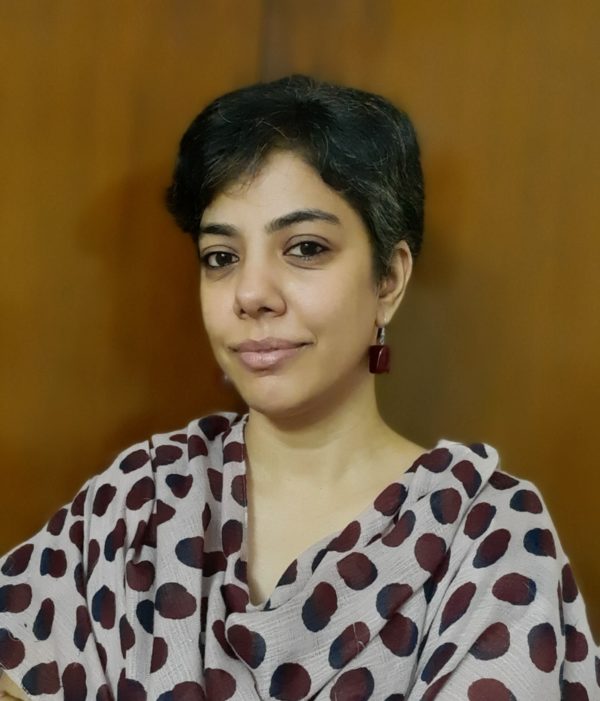
South Asia. Shutterstock.
Vidya Subramanian, this year’s Mittal Institute Raghunathan Family Fellow, is an interdisciplinary scholar whose research interests lie at the intersection of technologies and societies. Vidya’s current research investigates the changing nature of citizenship in the technological society we now inhabit. Vidya will be a panelist during a discussion on the “Next Generation of Scholars” at the Mittal Institute’s Annual Symposium on May 19, which will focus on the theme “The Making of Modern South Asia.”
Mittal Institute: Vidya, we’re really looking forward to hearing more about your research at next week’s panel for our Annual Symposium. The last time we talked with you about your work it was in 2020 and a lot has happened since then. Now you’ve spent a year at Harvard, as well. Can you catch us up on how your research has evolved in this time?
Vidya Subramanian: There are two very exciting things I have been a part of in my time here at Harvard. The first is being a member of the Science, Technology and Society (STS) Fellows group at the Kennedy School, and the other was attending the Science Power and Politics (SPP) course that Professor Sheila Jasanoff offers (read an LMSAI profile on Professor Jasanoff). SPP is an intensive, semester-long study in the methods, ideas and works that are used in the field of STS.
While I have read many of the works before and already had some idea of the field itself, working through them again with Professor Jasanoff and the STS Fellows has been a deeply enriching experience. In the STS Fellows, I have found a wonderful group of fellow thinkers and friends who have helped me hone some of my own research topics, enabled me to formulate more research ideas and allowed me to build cross-national collaborations with them, as well.

Vidya Subramanian, Raghunathan Family Fellow, The Lakshmi Mittal and Family South Asia Institute.
In terms of my research work, I came here with a broad idea about citizenship in the digital arena and have managed to find specific ways of looking at what is obviously a very large project, including the emergence of contestations within ideas of citizenship — becoming a data subject and being a dissenting political citizen, etc. It is a project that also has resonances across South Asian contexts, and I hope to be able to write it up soon. I have also published a research paper on the emergence of the citizen within the digital realm in the public deliberations around net-neutrality laws in India in the journal Dialogue, a publication of the Indian Academy of Sciences.
Mittal Institute: Have any of the events of the pandemic influenced how you think about technology or raise any new questions?
Vidya Subramanian: I think the pandemic has significantly changed the way I considered questions of technological mediations in several aspects of life. The ubiquity of technologically mediated communication, the growing importance of educational technologies and even such things as the future of work have become important questions for me as a researcher working in the area of technology. We were thinking about some of these things even before the pandemic, but the past two years have really accelerated the timelines on some of these issues — EdTech and remote work being two of the most prominent of them.
We were thinking about some of these things even before the pandemic, but the past two years have really accelerated the timelines on some of these issues — EdTech and remote work being two of the most prominent of them.
To talk of just one: Until 2020, I had not considered the possibility that so many of us who had to move to remote work because of the pandemic would be reluctant to go back to working in-person, or the many ways in which organizations would rearrange their hiring and everyday work practices to permanently incorporate remote work. One of the ways I am interested in studying this change is through the online ‘space’ within the ‘home’ – a place that was once the default space of ‘not work’ and that which is increasingly becoming a place where these two distinct spheres of life collide. Of course, this has been the case before the pandemic as well for many people, but the scale at which it is now happening is unprecedented. What this also manages to do in a way that has specific ramifications for more traditional societies, such as in South Asia, is increase the burden on working women who also have responsibilities of nurture and care at home. Where women were able to demarcate time in their day for professional work and care work, the two have now begun to come together and require simultaneous handling. And all of this is shaped by our use of information and communication technologies (ICTs) . I’m fascinated by the way that ‘space’ is re-formed through technologies; ‘online’ and ‘home’ are some of those spaces that I am thinking about anew.
Mittal Institute: Your panel at next week’s Symposium will be focused on the next generation of scholars. What are some of the key questions you think the next generation of scholars need to tackle in your field of Science and Technology Studies?
Vidya Subramanian: Science, Technology and Society is a field concerned with how science and technology influence society, and, simultaneously, how science and technology are shaped by societal interactions and influences. In my opinion, never before have we lived in a society that is so deeply enmeshed with science and technology. Everything from everyday communication and governance (mobile phones, the internet, fake news, data analytics) to the large questions, such as coping with climate change (technology transfers, risks and uncertainty, humanity’s relationship with the rest of nature) and even questions of life itself (vaccines, biobanks, genetic engineering) touch science and technology in some way.
In my opinion, never before have we lived in a society that is so deeply enmeshed with science and technology.
As I see it, the most pressing questions of our time – everything from politics and policy at the top end to food security and communication at the everyday individual level, and indeed, everything else in between – will require trans-boundary, interdisciplinary academic engagement. To me, this is an important aspect of the future of academics, where scholars will need to reach out across disciplinary boundaries and academic silos to work together and engage meaningfully with each other.
To me, this is an important aspect of the future of academics, where scholars will need to reach out across disciplinary boundaries and academic silos to work together and engage meaningfully with each other.
I see STS as being in the vanguard of such work, where we must engage with questions of politics, policy, law and democracy as we study every aspect of human life. Questions of future making and trust in institutions – such as multinational agencies, legal systems and, indeed, democracy itself – are already at the forefront of the way we think and these are likely to become more and more important.
